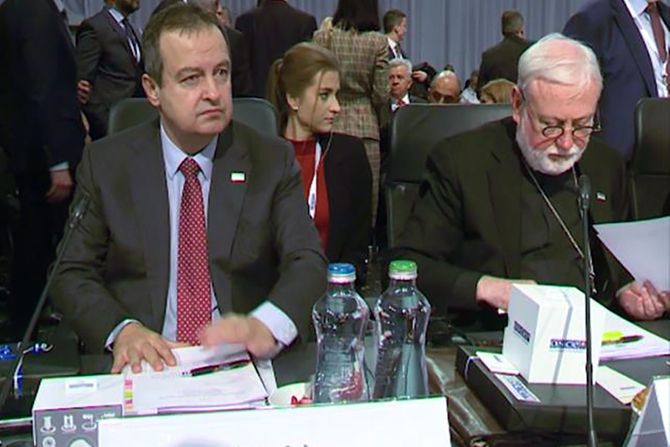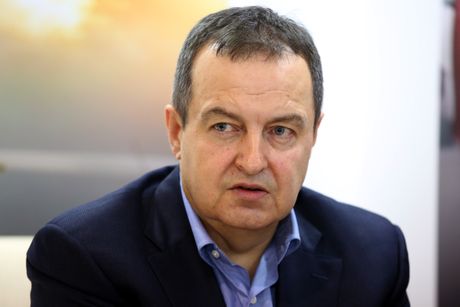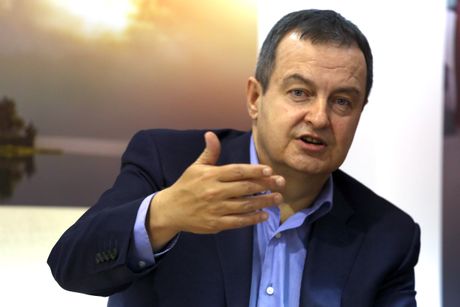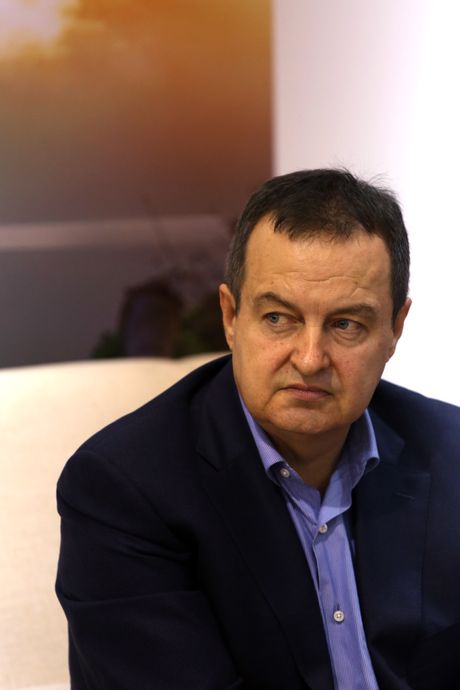
Dacic at OSCE Ministerial Council: Pristina should abolish taxes and return to dialogue
Serbian Deputy Prime Minister and Foreign Minister Ivica Dacic said in Bratislava today that Belgrade expects the international community to influence the new Pristina authorities to abolish their taxes on Serbian products that have been increased by 100 percent, and return to dialogue.
In his address at the 26th OSCE Council of Ministers Dacic said that the dialogue between Belgrade and Pristina, as the only way to resolve problems in the province, has been "blocked for more than a year."
With their irresponsible, unilateral moves, such as the introduction of the 100 percent taxes on goods from central Serbia, Pristina politicians, Dacic stressed, not only endagered the survival and rights of the Serb community in Kosovo and violated the regional CEFTA free trade agreement, but also made it impossible to reach a compromise and find a viable solution that would make neither side feel victorious or defeated.
"In order to find such a solution, we expect the international community to influence the new Pristina authorities to abolish this unilateral measure and to return in good faith to dialogue as the only way to solve problems in the Province," he said.

Speaking about the situation in the region, Dacic said that the Western Balkans is deeply disappointed at the moment not only by the slowing down, but by the stalling of the EU enlargement process.
He assessed that this situation sends a bad message to the countries of the region and favors the strengthening of radicalism and of unilateralism in solving common problems.
"I believe deeply that it is only possible to find sustainable solutions for the problems that are present in the region through compromise, flexibility and willingness to take into account the interests of others, not just our own," said Dacic.
Dacic: OSCE's goal is still far away
Serbian Deputy Prime Minister and Foreign Minister Ivica Dacic said in Bratislava today that, despite the tireless efforts, the OSCE's goal - that would lead to strengthening the organization and its more effective operations, and thus to increasing security - is still far away.

Quoting OSCE Chairman-in-Office Miroslav Lajcak, Dacic said in his address at the 26th ministerial summit of the organization that the "dynamic of the organization" is not what we want it to be.
The head of Serbian diplomacy noted that this year was yet another in a series during which the OSCE was facing serious and accumulated problems.
"Despite the tireless efforts of the Slovak and the previous presidencies to engage participating states in essential dialogue that would lead to the strengthening of our organization and its more effective operation, and thus to increasing security in the OSCE region, this objective is still far away, while 'the dynamic of the organization' - allow me to quote Chairman Lajcak - is not what we want it to be," Dacic said.
A good start in finding a way out of this complicated situation would, according to Dacic, be for participating states to accept that it is not necessary for everyone to have the same views on existing problems and challenges, but that we must respect our differences, show openness to engage in good faith and seek to compromise on eliminating or at least reducing security risks.

Speaking about the coming year, Dacic said that it will be symbolic for several reasons - marking 75 years since the end of World War II, whose lessons, he said, should not be forgotten.
"As a representative of a country that endured extraordinary sacrifices in the fight against Nazism, I have a special responsibility and obligation to emphasize that the horrors of World War II must never, in any form, be repeated," said the head of Serbian diplomacy.
He stressed that in this regard, it is a moral obligation of everyone to work together to counter any attempt to relativize the events of World War II - something that is unfortunately still happening today in the OSCE area.
"In that sense, Serbia particularly supports the adoption of the Ministerial Declaration on the occasion of the 75th anniversary of the end of World War II, of which it is a co-sponsor," Dacic said.
He said that next year marks anniversaries of adoption of the most important OSCE documents, which not only laid the foundations of the organization but also strengthened international order created after World War II.
"In addition to marking the 20th anniversary of the adoption of the Charter on European Security, next year we also mark the 45th anniversary of the adoption of the Helsinki Final Act, which defined the 10 basic principles governing relations between states such as equality between states, respect for territorial integrity and sovereignty, inviolability of internationally recognized borders and resolving all disputes peacefully through mutually acceptable solutions," Dacic said.
(Telegraf.rs/Tanjug)
Video: Primopredaja NATO, general Antonio Stasi, obraćanje
Telegraf.rs zadržava sva prava nad sadržajem. Za preuzimanje sadržaja pogledajte uputstva na stranici Uslovi korišćenja.

